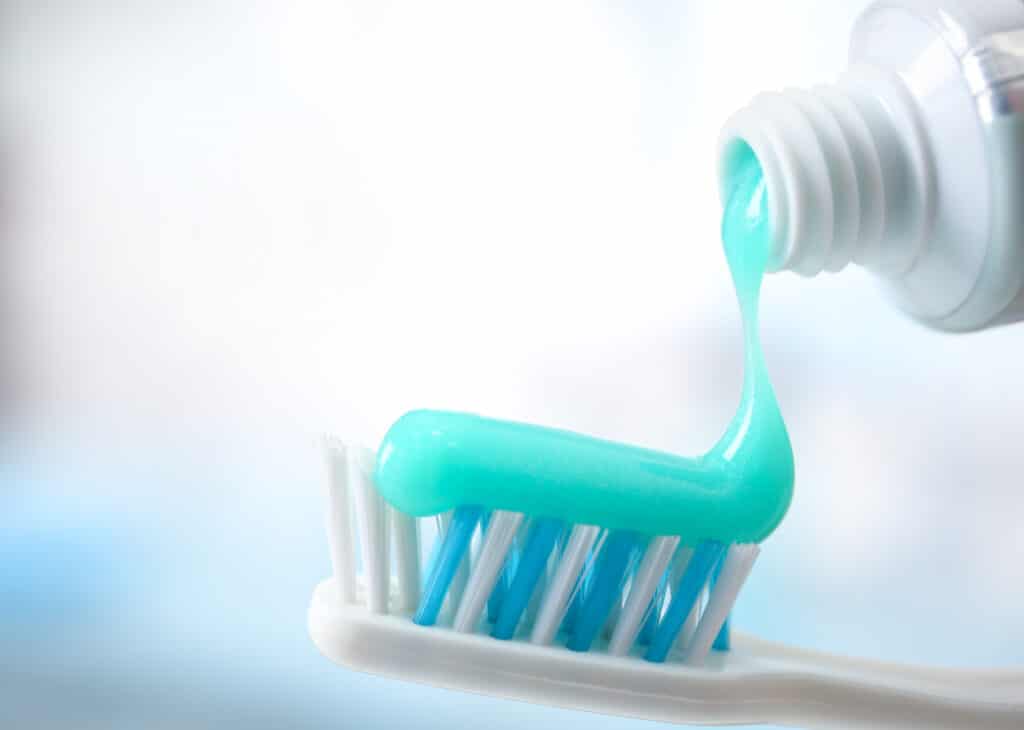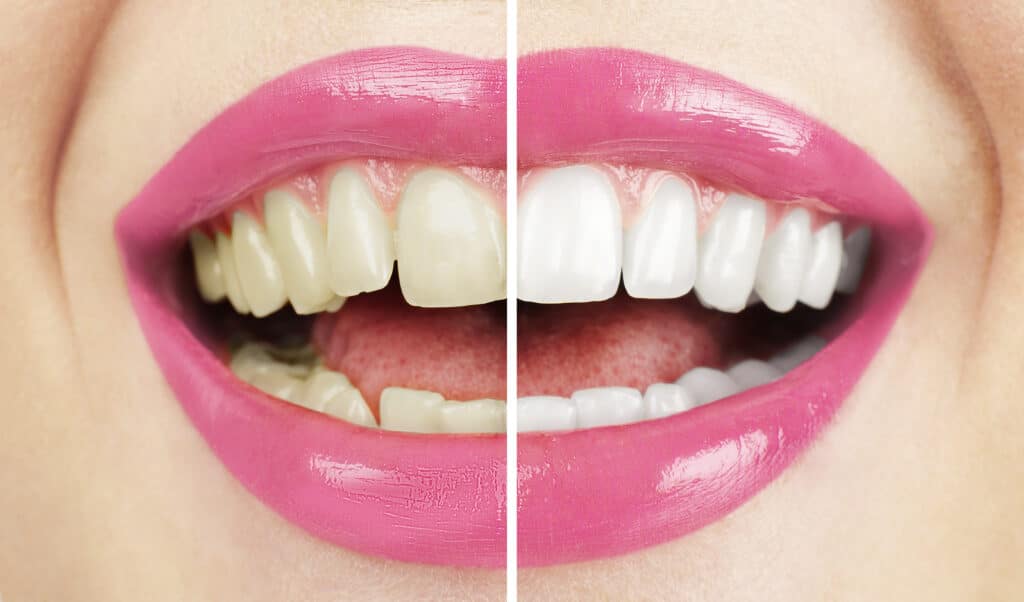Fluoride helps prevent tooth decay and cavities and is an important part of keeping your teeth healthy and strong. There are many ways to make sure you get enough of this important mineral, both topically and systemically. Keep reading to learn everything you need to know about fluoride so you can ensure you’re properly taking care of your teeth.
#1. What Is Fluoride and How Does It Work?

Fluoride is a naturally-occurring mineral that restores tooth enamel. Your tooth’s enamel is its protective outer layer, and every day, the enamel both gains and loses minerals. When your teeth encounter acids, which are formed from bacteria and plaque in your mouth, you lose some of your enamel in a process called demineralization. On the other hand, when you consume food that contains fluoride, calcium, and phosphate, you regain enamel, which is called remineralization.
Tooth decay occurs when your teeth experience more demineralization than remineralization, so it’s important to protect your teeth’s enamel and make sure you get enough minerals in your diet.
#2. What Are the Benefits of Fluoride?
Fluoride’s benefits come from its remineralizing properties. It can slow down the process of demineralization, reverse early-stage tooth decay, and prevent cavity-causing bacteria from growing on the surface of the teeth. It even reduces your risk of cavities by around 25 percent.
If you have conditions like dry mouth or gum disease, fluoride can help you prevent these conditions from causing further problems like tooth decay. Additionally, if you have a dental crown, bridge, dentures, or braces, it can decrease your risk of cavities in the hard-to-reach places where your dental appliance meets your tooth.
#3. What Are the Sources of Fluoride?
There are many ways to get fluoride. Topical fluoride is applied directly to the teeth, while systemic fluoride comes from water, certain foods, or oral supplements.

- Toothpaste: Most toothpaste contains fluoride, so chances are, you’re getting it every time you brush your teeth.
- City water: Most water contains trace amounts of fluoride, along with other minerals. Many cities add additional fluoride to their water systems in order to reach the optimal level, which is 0.7 parts per million.
- Fluoride treatments: Your dentist can give you special treatments if necessary. These include foam, varnish, or gel, which are applied topically.
- Drops: Children and infants can benefit from fluoride drops administered daily over a long period of time. The dosage depends on the amount of water present in your city’s water and the child’s age, so work with your dentist to determine how much to give your child.
#4. How Much Fluoride Should I Have?
Fluoride has numerous benefits when used in the correct amounts. The dosage varies depending on age, but for people 14 years and older, three to four milligrams per day is sufficient. Consult with your child’s dentist to determine the correct amount for their age.
It’s important not to get too much fluoride, especially for children. Too much while teeth are still developing can cause issues such as fluorosis, which is a chronic condition that causes brown or white flecks or pitting on the teeth. Fluorosis develops while teeth are still forming under the gums and cannot occur on teeth that have already grown in, which is why children under the age of eight years old are most at risk.
Mild fluorosis is very common, affecting one in four people in the United States. It is characterized by light white areas on less than 50 percent of teeth’s surfaces. Moderate to severe fluorosis is much less common and can involve brown spots and pitting in addition to white spots.

Fluorosis doesn’t go away on its own. The only ways to treat fluorosis are through enamel microabrasion, in which your dentist removes a small layer of enamel from your teeth, or with teeth whitening to help the teeth’s appearance look more uniform. Whitening may not be suitable for more intense cases of fluorosis, since it may not be enough to correct severe discoloration. The other options include dental bonding, veneers, or crowns to cover up stains and improve the appearance of the teeth.
You can prevent your child from developing fluorosis by ensuring they spit out their toothpaste instead of swallowing it and bringing them to the dentist for regular check-ups.
Professional Dentistry from Eric Felt, DDS
Whether you need extractions, cleanings, or root canals, the office of Eric Felt can help. We’re committed to improving the smiles of all our patients and ensuring their teeth are strong and healthy through our many treatments and services. Schedule an appointment with us today!


